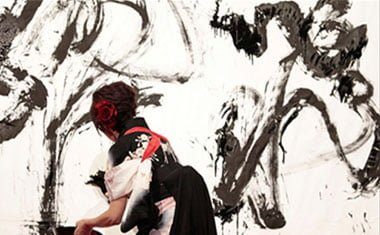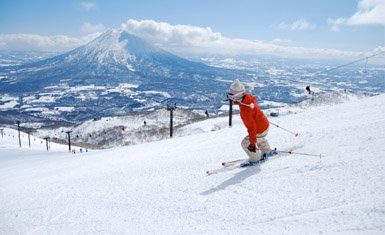On January 16 he passed away Hiroo onoda, a Japanese soldier who hid in the jungle for three decades thinking that the war continued. Onoda passed away at the age of 91 years.
In 1944, Lieutenant Hiroo Onoda had been dispatched to the Philippine island of Lubang south of Manila in response to the US invasion. His mission was to lead the guerrilla during the Second World War. Unfortunately, he was never notified of the end of the war, so for 29 years he continued to live in the jungle, waiting for his country to need his services and information again. Most of the Japanese army surrendered or withdrew, but with several scattered groups Onoda hid in the jungle.
For the next 29 years he survived on a diet of rice, coconuts and meat of animals that he stole, and tormented the Philippine forces that passed by. Onoda kept his rifle, ammo, and sword in excellent condition when he was discovered, and he was still wearing his military uniform all these years.
In 1974, Norio Suzuki, a Japanese student heard the news of what was happening in the Philippines and decided to go find Hiroo Onoda. When he finally found him, Onoda refused to give in, until he received an order from his former commander, the Greater Taniguchi, who by then was working in a book store in Japan. Finally Onoda decided to leave the jungle and President Marcos of the Philippines he granted her forgiveness.
After returning to Japan, Onoda described her experience. He said that “I was thinking only of doing my duty” when he finally came out of the jungle. Upon his return to Japan he was greeted as a hero. The country was in full economic growth and was no longer the same as when it had left. After being sent to the Philippines, in 1944 they noticed that Japanese military activity had been reduced on those islands, but they refused to surrender. During the following years they noticed that there was military activity in the Philippine jungle and they sent planes to distribute brochures with photos of their relatives. Onoda admitted that she thought it was her family obeying the enemy occupation.
Japan had changed, as it was in its period of greatest economic growth, and Onoda did not feel that he belonged there. So he went to live in a Japanese colony in Sao Paulo, Brazil and married a tea ceremony instructor. On a visit to Lubang he subsequently donated $ 10,000 to found a school and in 1984 returned to Japan to form the Onoda School of Natural Sciences. He also wrote an autobiographical book entitled “No surrender: my 30-year war”.
In 2001 he gave an interview to the Western press in the yasukuni shrine, in Tokyo. This place has generated controversy for years, as it commemorates the deaths of Japanese soldiers, many of whom committed terrible acts in neighboring countries during the war. Onoda’s name was written in that shrine for a time. In the interview, Onoda said that “in Japan you go to war because you are ready to die. That is the absolute precondition. Being a prisoner is the worst that can happen. Japan could be described as a culture based on shame. I think it helps a society with so many people in such a small place. In Lubang he didn’t want to be seen as a failure. So I protected my honor and carried out my mission to the end. ”


